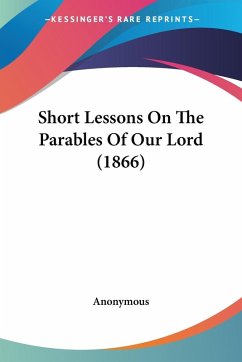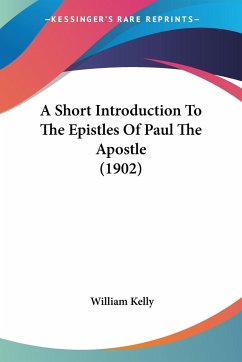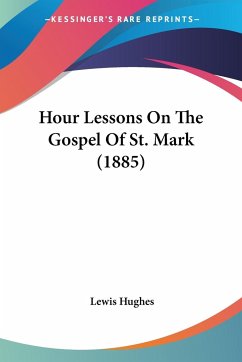
Short Lessons On The Parables Of Our Lord (1866)
Versandkostenfrei!
Versandfertig in 1-2 Wochen
25,99 €
inkl. MwSt.

PAYBACK Punkte
13 °P sammeln!
""Short Lessons on the Parables of Our Lord"" is a book published in 1866 by an anonymous author. The book is a collection of lessons that aim to explain the parables of Jesus Christ in a simple and concise manner. The parables are stories told by Jesus to convey spiritual truths and teachings to his followers. The author provides insights into the meaning and significance of each parable, drawing on biblical references and historical context to help readers understand the message behind each story. The lessons are written in a clear and accessible style, making it an ideal resource for anyone...
""Short Lessons on the Parables of Our Lord"" is a book published in 1866 by an anonymous author. The book is a collection of lessons that aim to explain the parables of Jesus Christ in a simple and concise manner. The parables are stories told by Jesus to convey spiritual truths and teachings to his followers. The author provides insights into the meaning and significance of each parable, drawing on biblical references and historical context to help readers understand the message behind each story. The lessons are written in a clear and accessible style, making it an ideal resource for anyone seeking to deepen their understanding of the teachings of Jesus. This book is a valuable resource for Christians seeking to gain a deeper understanding of the parables and how they apply to their lives.This scarce antiquarian book is a facsimile reprint of the old original and may contain some imperfections such as library marks and notations. Because we believe this work is culturally important, we have made it available as part of our commitment for protecting, preserving, and promoting the world's literature in affordable, high quality, modern editions, that are true to their original work.












